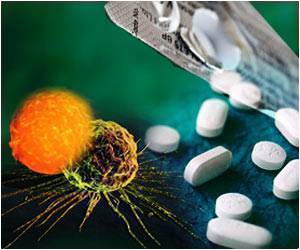New research shows beneficial effects of diabetes treatment drug such as metformin in head and neck cancer patients.

- Cancer is a deadly disease whose incidence is increasing globally at an alarming rate
- Diabetes treatment drug such as metformin’s insulin-lowering action could also contribute to its anti-neoplastic action.
- Improved outcomes in tumors were seen particularly in head and neck cancer patients when metformin was added to the chemotherapy and radiation treatment regimen.
TOP INSIGHT
Head and neck cancers account for about 3 percent of all cancers in the United States. Diabetes drug metformin shows promising result in head and neck cancer treatment.
Researchers at the University of Cincinnati (UC) College of Medicine have now found a link between metformin treatment and cancer prognosis particularly the head and neck cancer type. Studies proved that a slow escalation of metformin dose added to chemotherapy and radiation treatment regimen could have a beneficial effect in head and neck cancer patients. However if the dose is escalated too quickly, then it might not be well tolerated by patients.
The findings of the study were presented via poster presentation in American Society of Clinical Oncology (ASCO) Annual Meeting: Collective Wisdom held in Chicago.
Trisha Wise-Draper, MD, PhD, who is the lead investigator of the study and assistant professor in the Division of Hematology Oncology at the UC College of Medicine, a member of both the Cincinnati Cancer Center and UC Cancer Institute said that retrospective studies have shown improved outcomes in tumors treated with chemotherapy and radiation when patients were also given metformin for diabetes.
Dr. Wise-Draper stated, "In head and neck squamous cell carcinoma, which develops in the mucous membranes of the mouth, nose and throat, diabetic patients taking a medication called metformin had better overall survival compared to those not on metformin when also treated with chemotherapy and radiation. Additionally, pancreatic cancer patients treated with chemotherapy and metformin required higher doses of metformin - 1,000 milligrams twice a day - to experience positive results”.
Hence, the study protocol was modified to allow slower escalation over a period of 14 days. No substantial change in T cell or glucose levels was seen with the administration of metformin in the small sample of patients, but it was noted that there was increased C-peptide levels in response to metformin administration.
These results demonstrated that the combination of metformin and cisplatin and radiation was poorly tolerated when metformin was escalated quickly. However, no significant increase in side effects was seen with the addition of metformin.
The authors are continuing the study for a longer period of time with a possibly increased sample size in a quest for providing more definitive and conclusive evidence in the near future.
Source-Medindia
 MEDINDIA
MEDINDIA



 Email
Email










